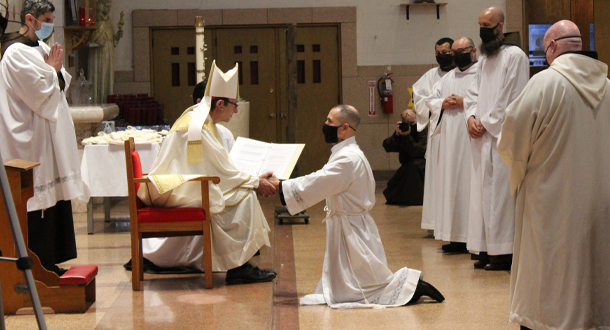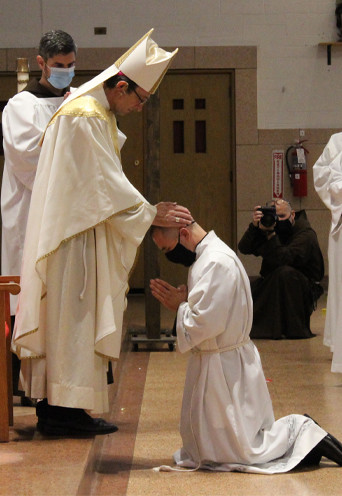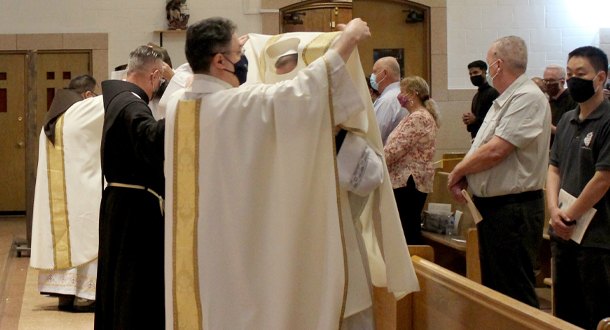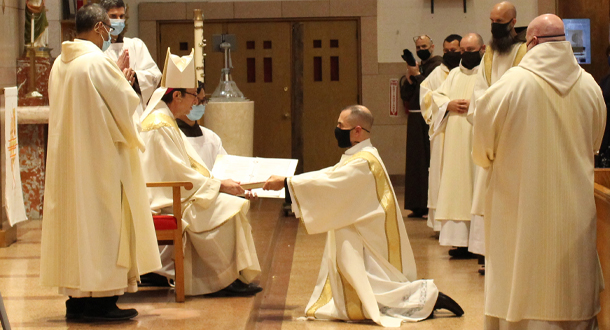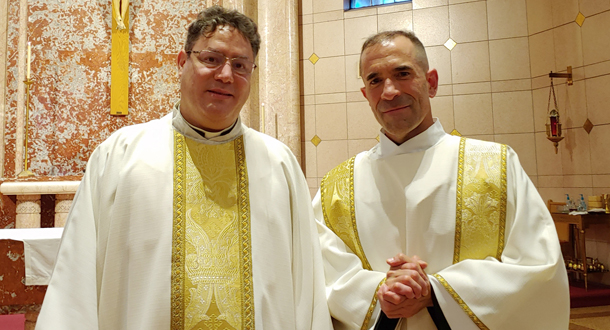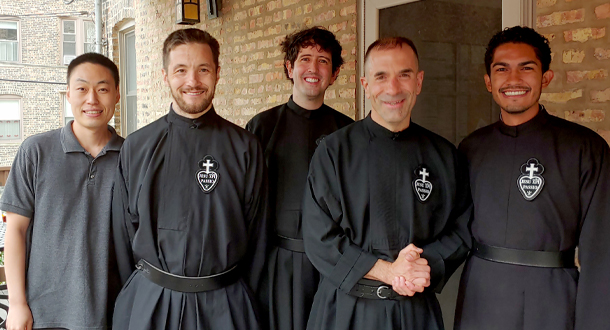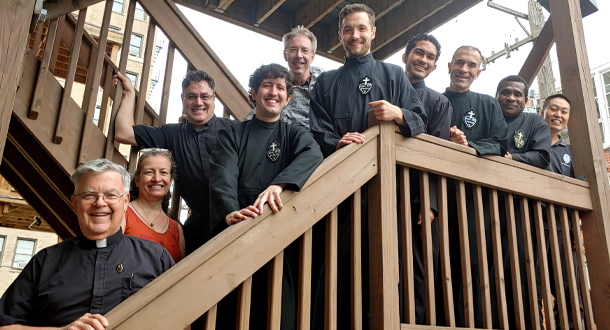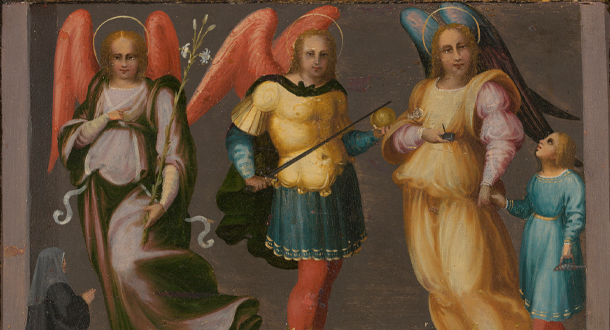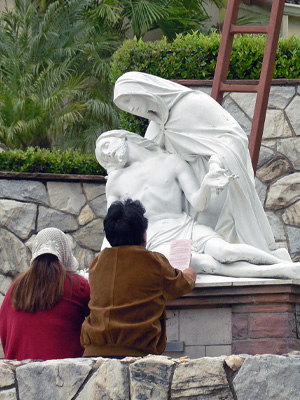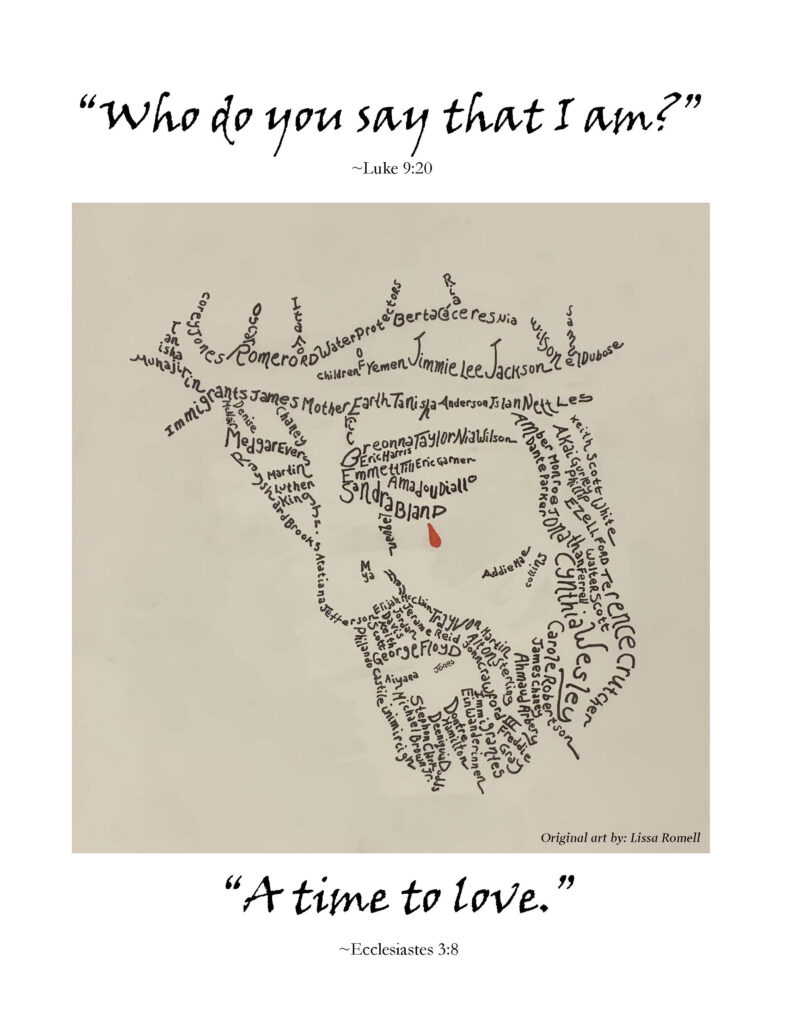Memorial of the Holy Guardian Angels
Scripture:
Job 38:1, 12-21; 40:3-5
Matthew 18:1-5, 10
Reflection:
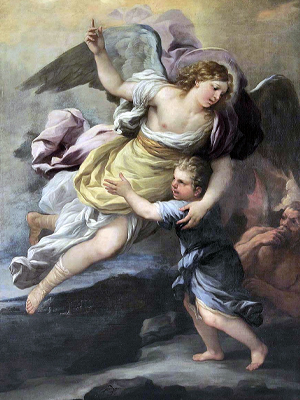
The concept of a ‘guardian angel’ is one that has a long history both in the Hebrew and Christian scriptures and is a belief and devotion that has ebbed and waned over the centuries. Perhaps the simplest and most foundational thought one might hold on this feast day is taken from Pope Francis talk in 2014 when he suggested in his homily for the Feast of Holy Guardian Angels, that one could consider a guardian angel to be one’s “traveling companion” in life. Indeed, the Pope suggested “No one journeys alone, and no one should think that they are alone.”
In this light we might reflect today on the fact that God is always offering assistance, guidance and direction in our lives and that it is God’s will that we should not just seek God, but that we should successfully find our way home to our Father in heaven. In this endeavour Jesus is both our model and saviour who has shown us the way.
Yet we cannot help but notice that angels also feature in the life of Jesus too. Angles announce the birth of Jesus, they clarify and announce his resurrection from the dead and they both announce and convey instructions to the disciples at the time of his ascension to the Father. In addition, we see angles accompanying and comforting Jesus after his temptations and trial in the desert and again they are present to offer comfort in his sorrow and agony in the garden prior to his arrest, suffering and death on Calvary.
Thus, angels seem to be a ‘link’ or ‘connection point’ whenever there is a heavenly truth to be revealed to us.
They are significant in that they highlight that God is always close to us and serve to point us always in the direction of the truth so that we might be helped in knowing and seeing God’s activity amongst us.
While angels feature throughout the scriptures only three archangels are mentioned by name in the scriptures – Michael, the warrior leader of the heavenly hosts, Gabriel, the heavenly messenger and Raphael, God’s healer, or helper. The three essential qualities or activities they witness to may be a key reflection for us today. God will strengthen us, God will always communicate and share with us and God will forever offer healing to us.
We are never alone in our spiritual journey.
Fr. Denis Travers, C.P., is a member of Holy Spirit Province, Australia.

